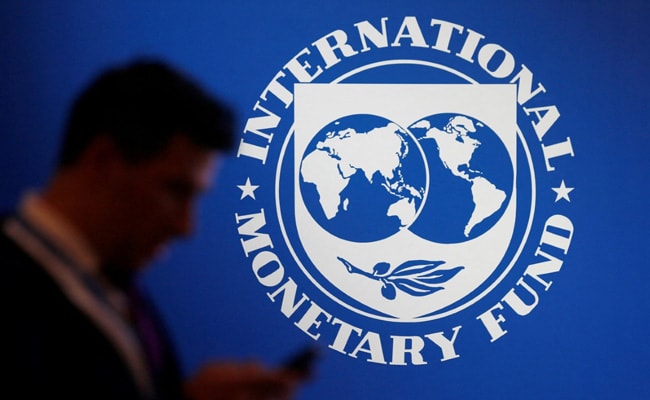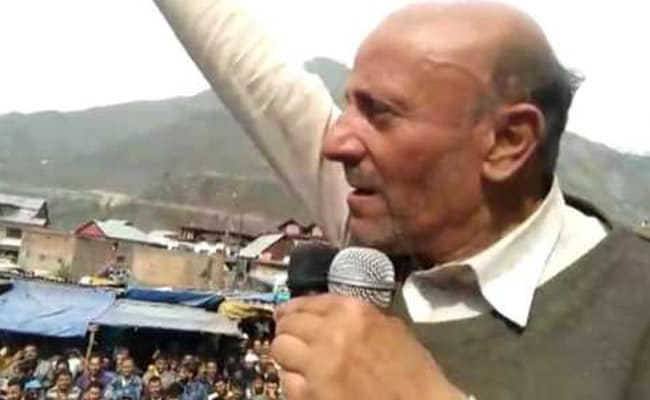
New Delhi:
Israel has been waging a war against the terrorist group Hamas for six months and now needs to strengthen another front. Iran said it was ready for war and would give Israel a “slap in the face.”
Iran’s comments came after an airstrike on the Israeli consulate in Damascus killed at least seven Iranians, including two generals. While Israel has carried out numerous attacks on Iranian-linked assets in Syria over the past few months, this is the first attack on an Iranian diplomatic building.
Israel has since been on alert, canceling home leave for combat troops, calling up reservists and beefing up its air defense capabilities. The Israeli military disrupted navigation signals over Tel Aviv on Thursday to disrupt GPS-guided drones or missiles that might be launched into the country.
Israel-Iran Shadow War: Origins
The roots of this shadow conflict can be traced to the 1979 overthrow of Iran’s last monarch, Shah Mohammad Reza Pahlavi. After the Islamic Revolution, Iranian leaders adopted an anti-Israel stance, allying themselves with groups such as Lebanese Hezbollah and Lebanese Hamas. Palestine.
Revolutionary leader Ayatollah Ruhollah Khomeini brought a new worldview that primarily embraced Islam. He called for a fight against “arrogant” world powers that oppress others, including Palestinians, in order to serve their own interests.
Iran’s new government began calling Israel the “Little Satan” and the United States the “Big Satan.”
Israel, meanwhile, views Iran’s nuclear ambitions as an existential threat and is said to be conducting covert operations to thwart its nuclear program.
battlefield
The conflict between Israel and Iran is not limited to ideological or proxy groups, with both countries regularly attacking each other. But both countries have publicly denied carrying out the attacks, which is why the conflict has been dubbed the “shadow war” and has spread to several other countries in the region.
Lebanon is one of the theaters of the shadow war between the two Middle Eastern countries, with Hezbollah emerging as a proxy for Iranian interests in the region. Israel’s invasion of Lebanon, coupled with Hezbollah’s rocket attacks on Israel, has continued a cycle of violence along the border.
Syria’s civil war has provided another battlefield for the conflict, with Iran stepping up its military presence to support President Bashar al-Assad and facilitate arms transfers to Hezbollah. In response, Israel launched multiple airstrikes against Iranian assets in Syria, further escalating tensions.
Incidents at sea have also heightened hostilities between the two rivals, with both Israel and Iran suspected of carrying out attacks on merchant ships.
What’s happening now?
Suspected Israeli warplanes bombed the Iranian embassy in Damascus on Monday, killing an Iranian military commander and marking a major escalation in Israel’s war with its regional rivals.
Iran’s Islamic Revolutionary Guard Corps said seven Iranian military advisers were killed in the attack, including Mohammad Reza Zahedi, a senior commander of the Quds Force, an elite foreign espionage and paramilitary force.
Iran said it reserves the right to “take a decisive response” and will give Israel a “slap”.
Why the United States is on high alert
US President Joe Biden called Israeli Prime Minister Benjamin Netanyahu and assured him of support as the Iran-Iraq conflict escalates.
“Since then, our teams have been in regular and ongoing contact. The United States fully supports Israel’s defense against the Iranian threat,” a senior Biden administration official said.
But just hours after Biden’s call became public, Iran issued a statement warning the United States not to get involved in the conflict.
In a written message to Washington, Iran “warned the United States not to fall into Netanyahu’s trap,” Mohammad Jamshedi, the Iranian president’s deputy chief of staff for political affairs, wrote on X, referring to the Israeli prime minister. Yamin Netanyahu. The United States should “step aside to avoid being hit.”
Is an all-out war possible between Israel and Iran?
The specter of all-out war looms, especially over Iran’s nuclear programme. Despite Iran’s claims of peaceful intentions, Israeli officials remain skeptical, citing intelligence suggesting otherwise.
Israeli officials have repeatedly suggested that if Iran reaches the edge of weapons capabilities, they will use air power to attack its nuclear program, as they did against Iraq in 1981 and Syria in 2007.
Follow us on Google news ,Twitter , and Join Whatsapp Group of thelocalreport.in














